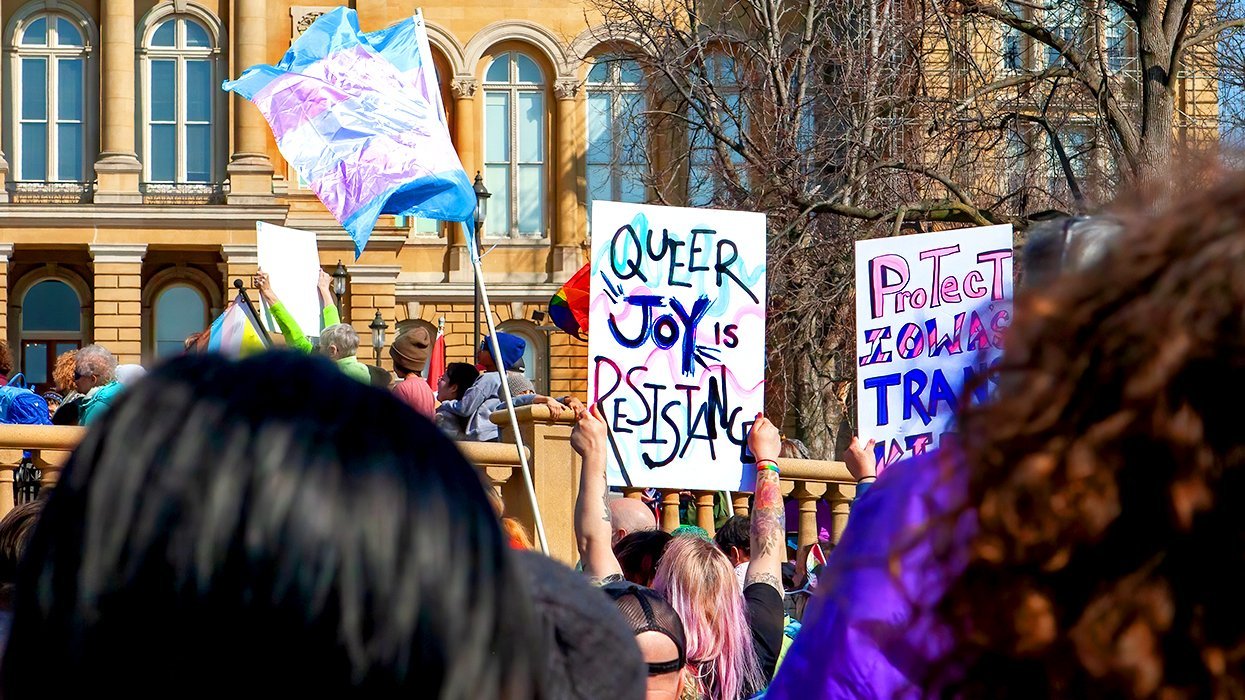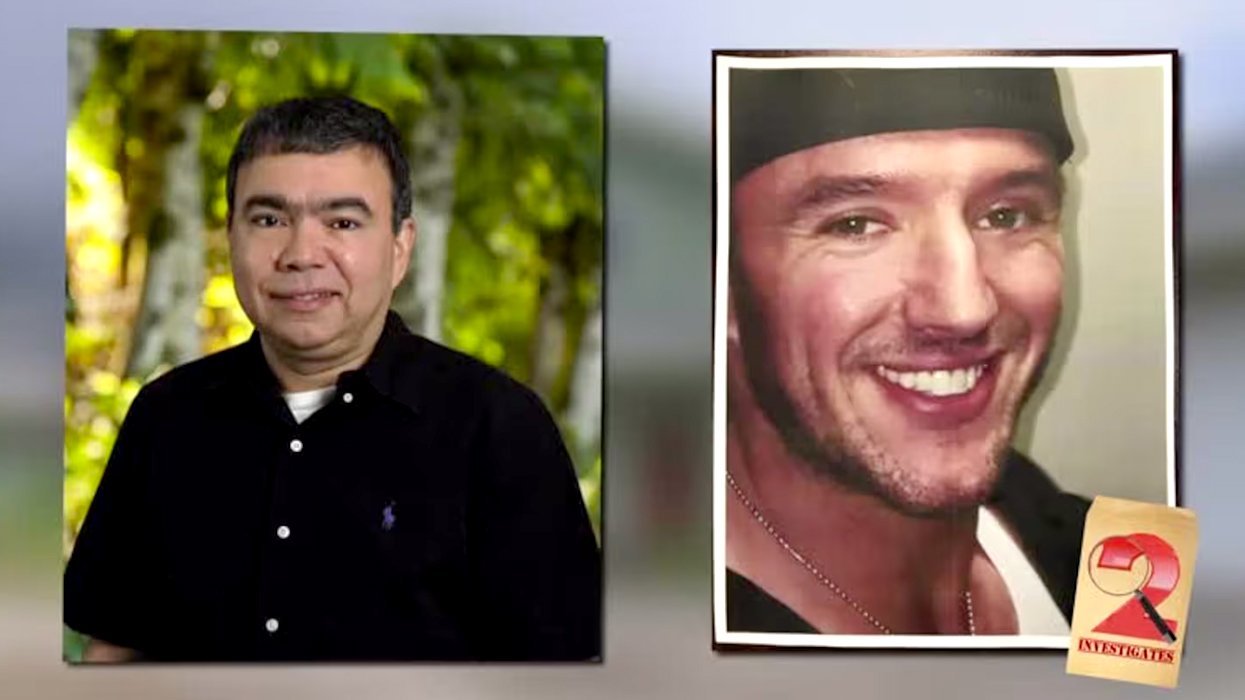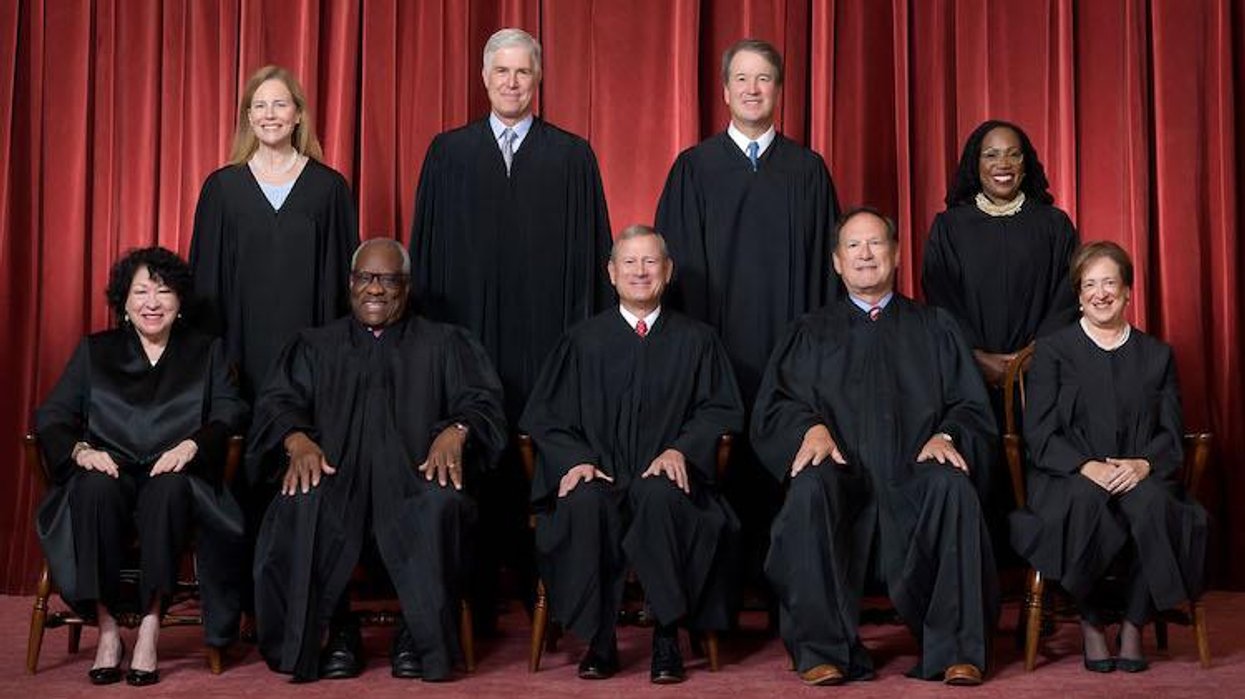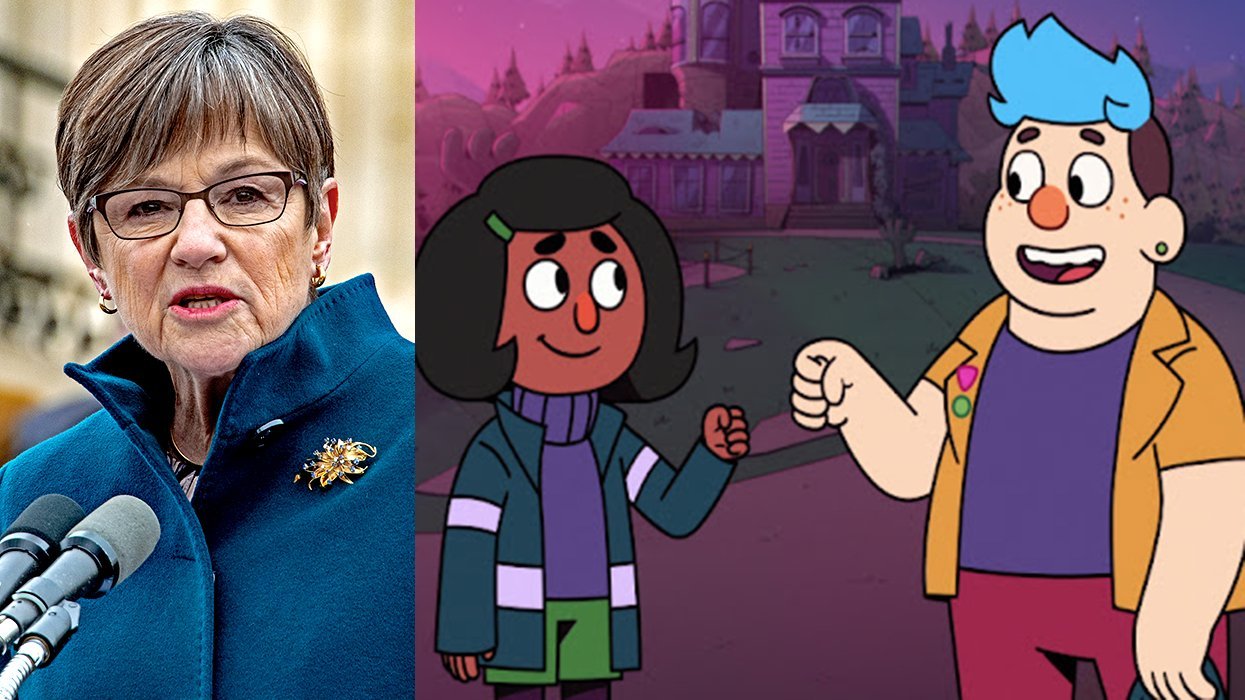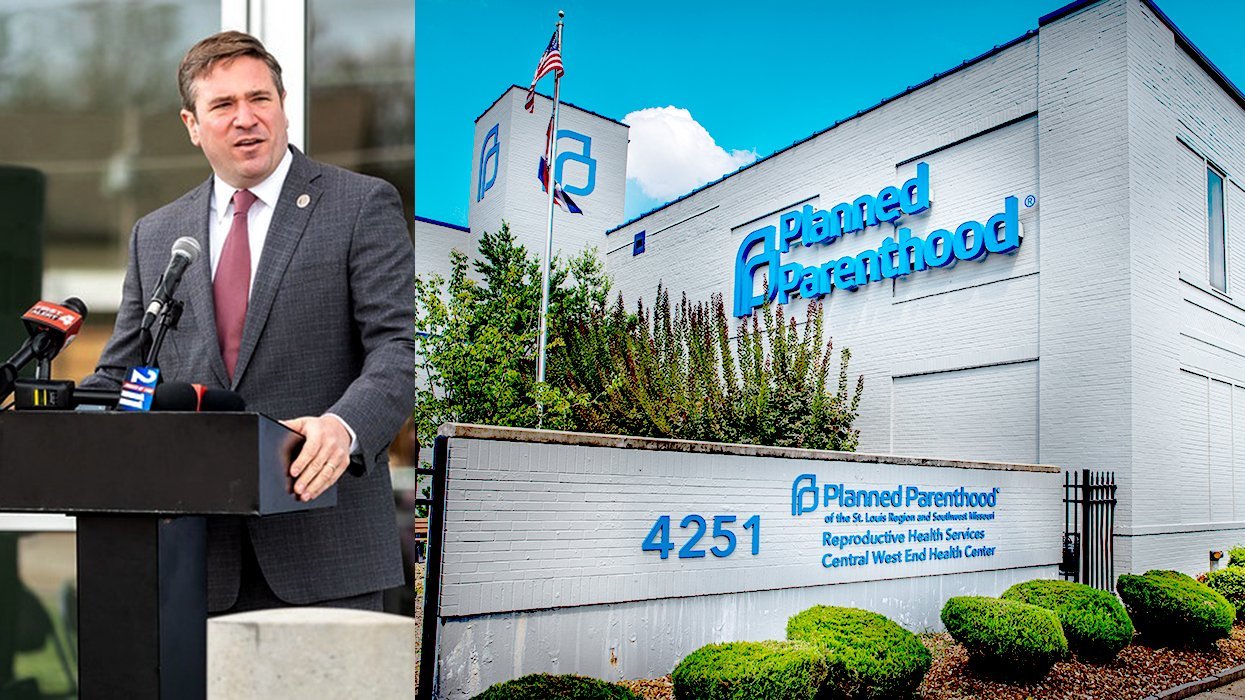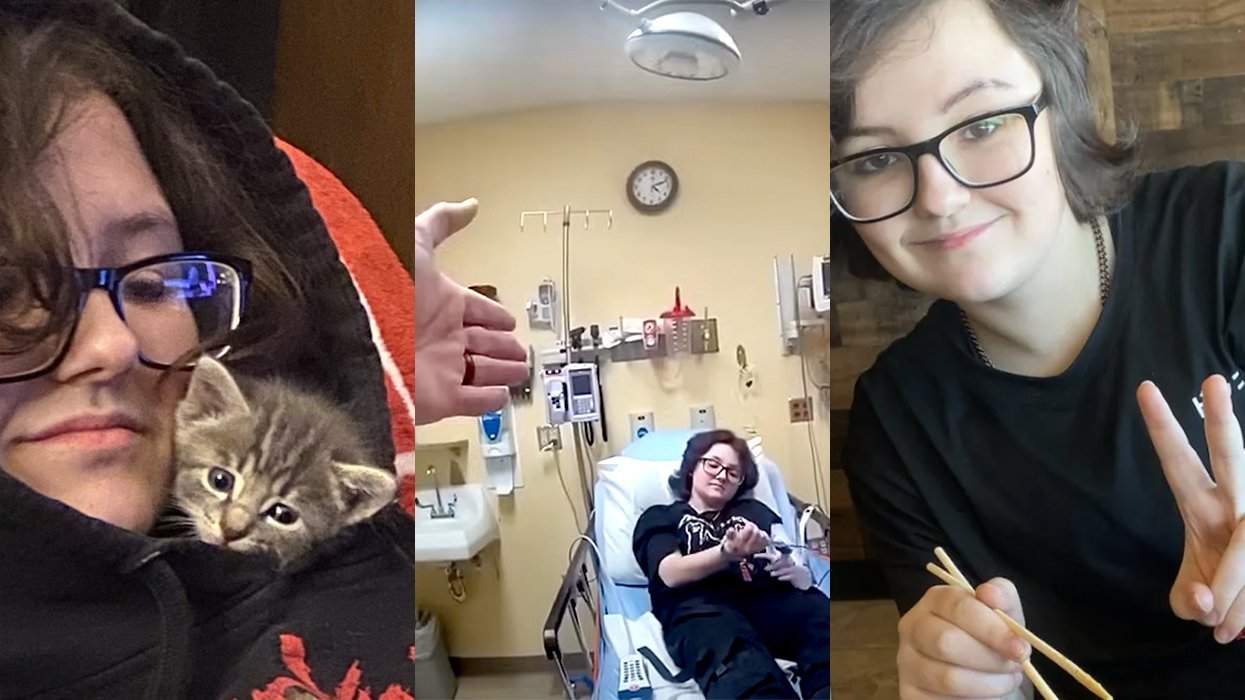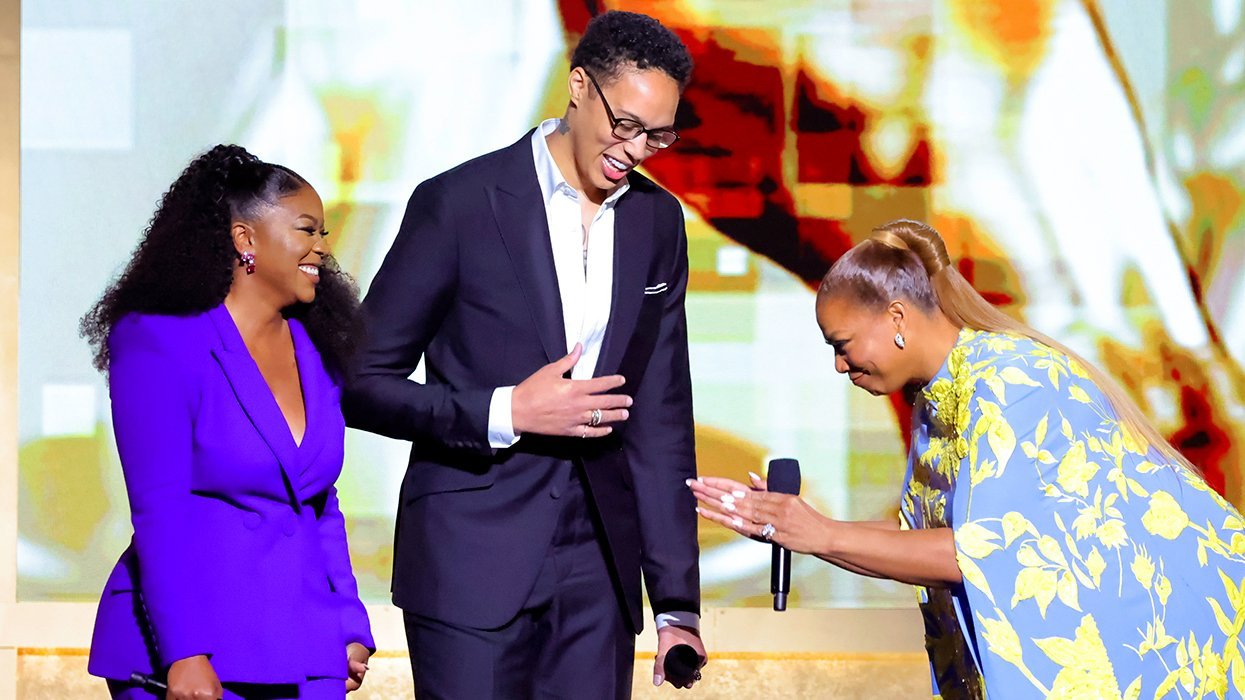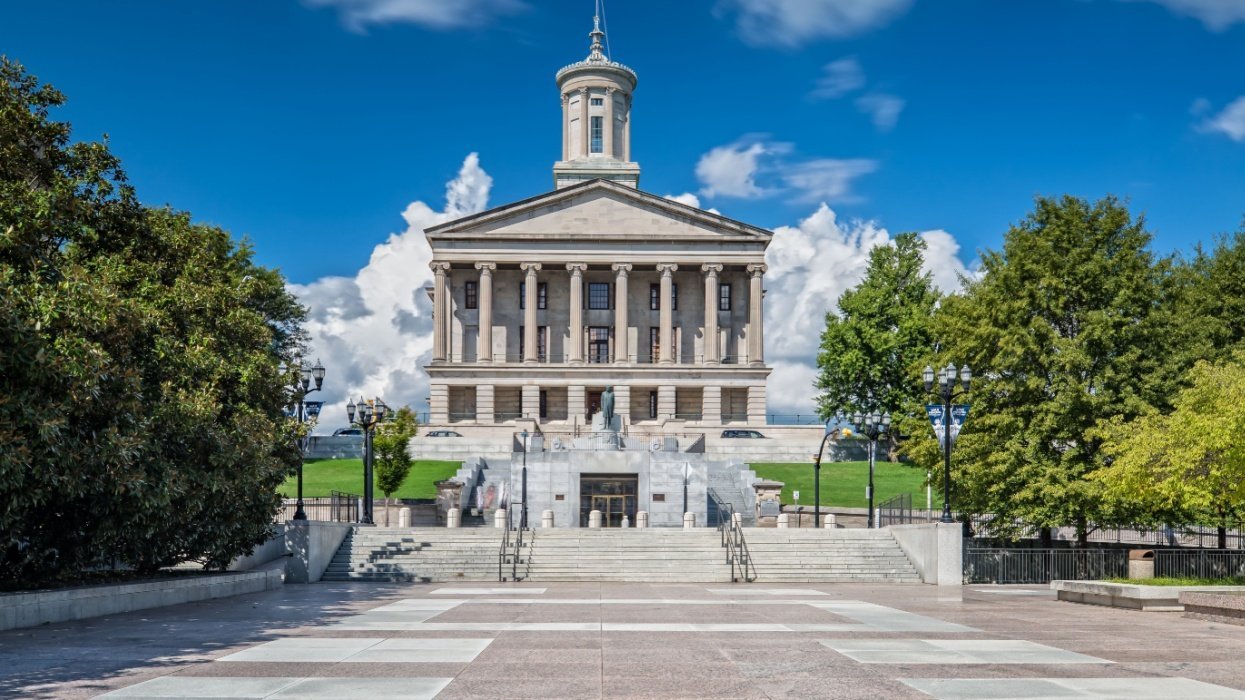
CONTACTStaffCAREER OPPORTUNITIESADVERTISE WITH USPRIVACY POLICYPRIVACY PREFERENCESTERMS OF USELEGAL NOTICE
© 2024 Pride Publishing Inc.
All Rights reserved
All Rights reserved
By continuing to use our site, you agree to our Private Policy and Terms of Use.
In the latest surprising twist along the long and winding path of the Maryland marriage equality bill, the house of delegates voted Friday afternoon to recommit the bill to committee, effectively ensuring there would be no further action on the bill until next year.
Following three hours of impassioned debate, house chairman Joseph Vallario proposed the motion to recommit, which delegates approved in a voice vote. The procedural maneuver sends the bill back to the judiciary committee, where it can be taken up again in 2012. The committee advanced the bill by a 12-10 vote last week.
While clearly stunned, advocates struck an upbeat tone in their reaction to the move, which buys the measure more time and avoids an unequivocal failure with marriage legislation also pending in New York and Rhode Island this year. Having passed the senate last month, the bill encountered greater than expected hurdles in the house, where it remained one to two votes short of the 71 needed to pass as late as the morning of the anticipated final vote.
"Though we are disappointed that we must continue to fight for marriage equality, today's move was a strategic step that will allow us to fight and win in the future," said Morgan Meneses-Sheets and Charles Butler, the executive director and board president, respectively, of Equality Maryland, the statewide advocacy group, in a statement.
A coalition of groups including Equality Maryland, the Human Rights Campaign, Freedom to Marry, and Gill Action echoed that sentiment in a subsequent statement.
"Already this year we have made tremendous progress toward winning the freedom to marry for same-sex couples in Maryland. Successful votes in the full Senate and House committee show there is a strong and growing movement toward the freedom to marry. Over the past several days it has become clear that additional time to continue the marriage conversation in the state will better position the Civil Marriage Protection Act for success. By taking a bit more time, the majority of Marylanders who support the freedom to marry in the state will have the opportunity to have their voices heard by their legislators," said the statement.
In an interview afterward, Meneses-Sheets said her group did not expect to see a vote on the bill in the 2011 session.
"We do not anticipate seeing this vote again this year," she said. "There is hard work for the next nine months until we vote again."
Asked whether she agreed with the decision by house leadership to delay a vote, Meneses-Sheets replied, "All of the folks who've been involved in the day-to-day work had an opportunity share their opinion. At the end of the day, decisions are made."
Sen. Jamie Raskin, the floor leader for the bill in the senate, agreed that it was unlikely the bill would see a vote this year.
"I think that there was a heroic effort made by Equality Maryland and advocates in the house, so it's hard to imagine that any stones were left unturned," he said. "If there were two to three delegates who would wake up and realize they made a huge mistake, then we could revive it this session. But in all likelihood, that's all she wrote for 2011. I just can't imagine the body has any energy for it."
Raskin attributed the disappointing outcome in large part to a "fierce grassroots campaign" by religious groups opposed to marriage equality. He said opponents seemed spurred to action by the success in the senate, which approved the bill by a 25-21 vote two weeks ago without protracted debate.
"A number of delegates told me they were planning to move in a positive direction but there were just tons of robocalls coming into their district," he said. "I think the opponents were stunned by our success in the senate. They called in the heavy artillery from around the country."
Following the vote to recommit on Friday, the antigay National Organization for Marriage issued a statement "congratulating" the Maryland legislature for "defending" marriage. This week the group pledged $1 million to defend Democrats in the state who voted against the marriage equality bill and to defeat any Republicans who supported the measure.
"Don't call it marriage. Call it civil unions," she said.
The proposal failed by a voice vote, and Del. Mike McDermott said those who voted against the amendment had forsaken a "bridge."
Del. Mary Washington, an African-American lesbian, dismissed the idea.
"The 'bridge' that is offered by civil unions is a bridge that takes us nowhere," she said.
In an indication of the emotional intensity surrounding the debate, delegates engaged in an early back-and-forth about whether the struggle for marriage equality could be compared to the civil rights movement. Almost one third of Maryland's 5.7 million residents are African-American.
Emmett C. Burns Jr., a Democratic delegate from Baltimore County, delivered a lengthy speech in which he argued that marriage equality advocates who would "ride in on the coattails" of the civil rights movement were "historically incorrect." The African-American lawmaker invoked the Declaration of Independence as he challenged the bill's supporters to produce examples of persecution comparable to what civil rights advocates endured.
"Show me your Selma, Ala.," he said. "Show me your hands and let me see the scars that my race has known, that my people has known."
Del. Joseline Pena-Melnyk later received a standing ovation when she challenged Burns in her reply, reminding him that the late state senator Gwen Britt, a primary force behind marriage equality legislation in the state, was African-American.
Had the vote occurred in the house, it was expected to be close. The Civil Marriage Protection Act encountered an unexpectedly bumpy ride in the house, traditionally regarded as more liberal than the senate.
Gov. Martin O'Malley, who promised to sign the bill, issued a statement following the move to recommit Friday afternoon.
"It is my firm belief that equality under the law means equality for everyone, and our laws should reflect that fundamental principle," he said. "Together, we've worked hard to protect and expand these rights for lesbian, gay, bisexual and transgendered citizens in our state. It was my hope to sign a marriage equality act consistent with these progressive reforms, while protecting religious freedom in our state.
"As one Maryland we must work together to respect the dignity of every individual. I remain committed to working with all Marylanders to ensure that rights are protected for equally for everyone."
Want more breaking equality news & trending entertainment stories?
Check out our NEW 24/7 streaming service: the Advocate Channel!
Download the Advocate Channel App for your mobile phone and your favorite streaming device!
From our Sponsors
Most Popular
Here Are Our 2024 Election Predictions. Will They Come True?
November 07 2023 1:46 PM
17 Celebs Who Are Out & Proud of Their Trans & Nonbinary Kids
November 30 2023 10:41 AM
Here Are the 15 Most LGBTQ-Friendly Cities in the U.S.
November 01 2023 5:09 PM
Which State Is the Queerest? These Are the States With the Most LGBTQ+ People
December 11 2023 10:00 AM
These 27 Senate Hearing Room Gay Sex Jokes Are Truly Exquisite
December 17 2023 3:33 PM
10 Cheeky and Homoerotic Photos From Bob Mizer's Nude Films
November 18 2023 10:05 PM
42 Flaming Hot Photos From 2024's Australian Firefighters Calendar
November 10 2023 6:08 PM
These Are the 5 States With the Smallest Percentage of LGBTQ+ People
December 13 2023 9:15 AM
Here are the 15 gayest travel destinations in the world: report
March 26 2024 9:23 AM
Watch Now: Advocate Channel
Trending Stories & News
For more news and videos on advocatechannel.com, click here.
Trending Stories & News
For more news and videos on advocatechannel.com, click here.
Latest Stories
Supreme Court lets Idaho enforce law criminalizing gender-affirming care for minors
April 15 2024 8:47 PM
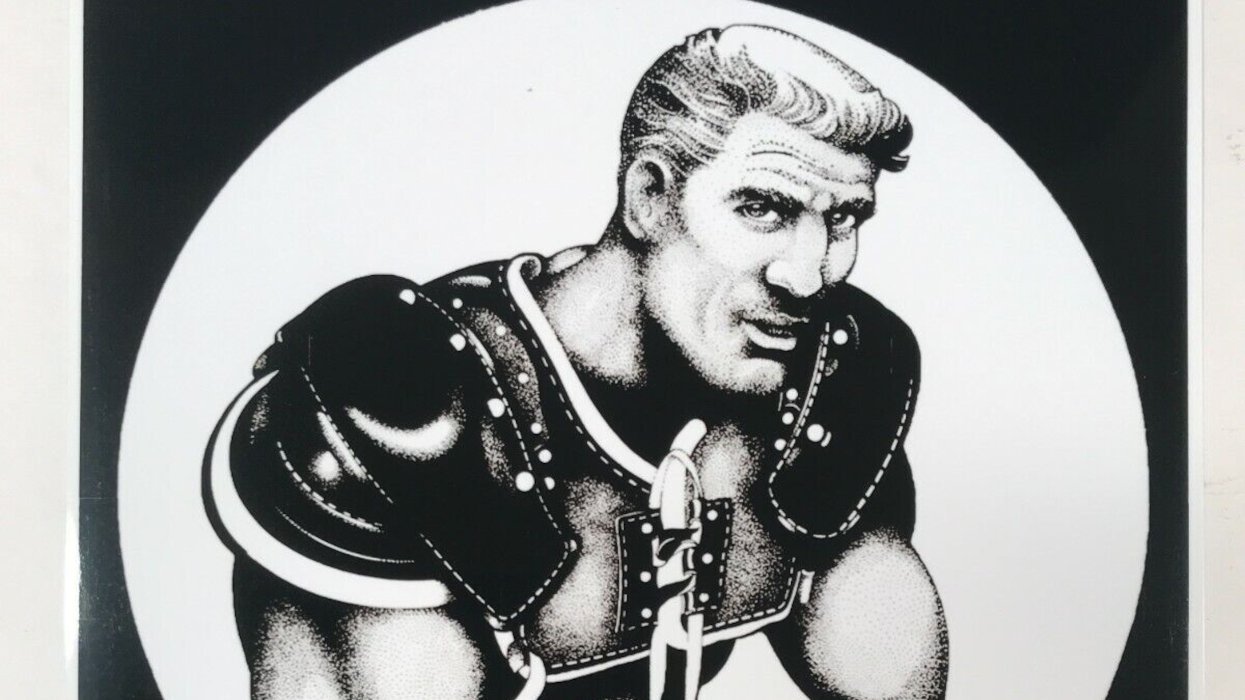
Plus
Yahoo FeedGay fetish artist Rex has died — see some of his sexy work
April 15 2024 8:13 PM
Brittney Griner and her wife, Cherelle, are expecting! Here's when baby Griner is arriving
April 15 2024 12:52 PM
Tennessee Senate passes bill making 'recruiting' for trans youth care a felony
April 14 2024 11:17 AM





















